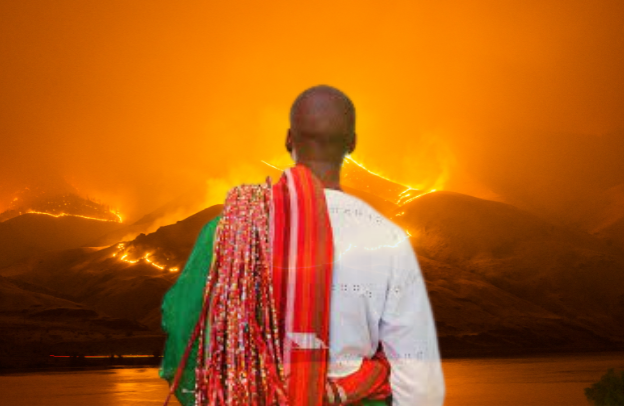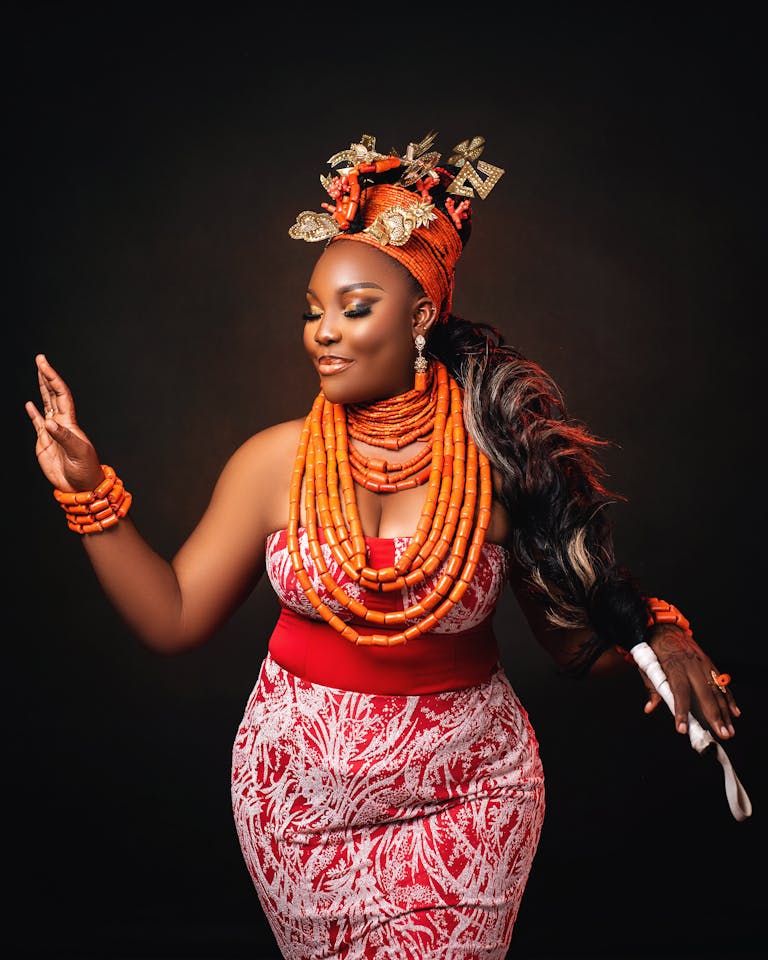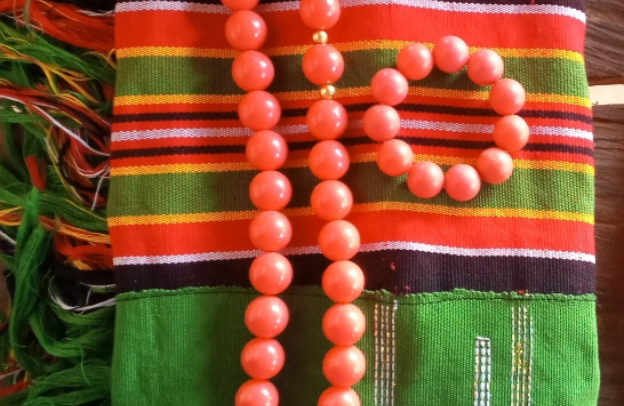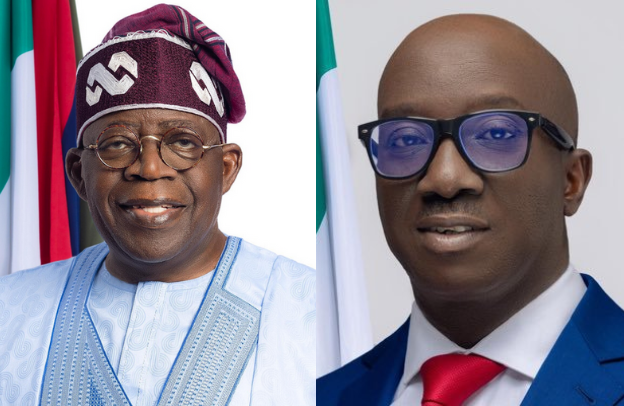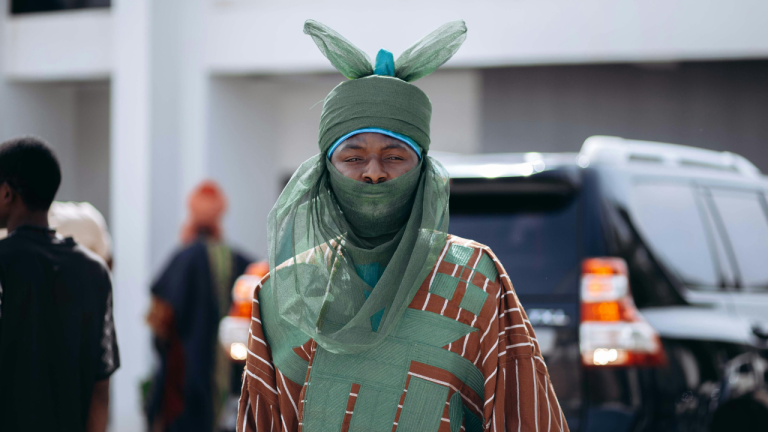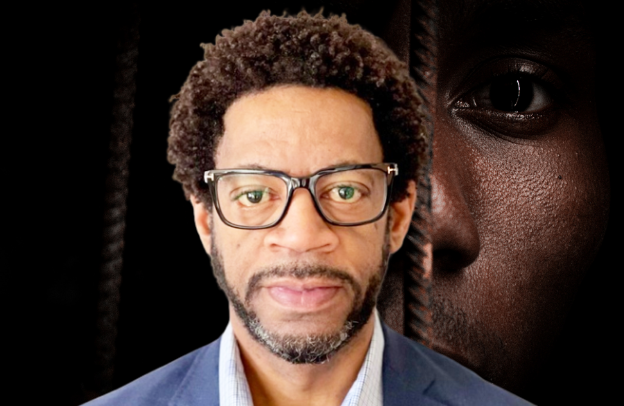The Esan War Machine and the Foundation of Eko Lagos, Nigeria (Agba: The Esan God Of War, 3)
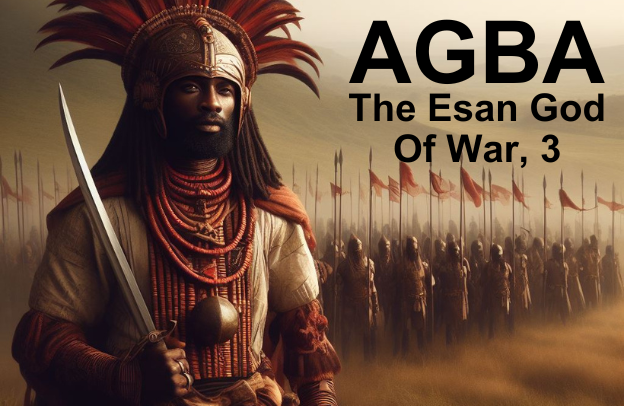
Welcome to part three of our series: “Agba: The Esan God of War”. In this part of the series, we will examine the Esan military prowess during the Benin empire and the precolonial Nigeria. It might surprise you to note that the Esan people had a significant role to play in the history and success of the Benin empire.
Want to learn more about storytelling? Start by downloading the first chapter of The Storytelling Mastery.
The Benin Kingdom is understood by historians to be one of the earliest and most advanced states along the West African coast (from around the 13th–19th century). Originating from the former Edo Kingdom of Igodomigodo about the 11th century AD, it thrived until its annexation into the British Empire in 1897.
The reason you might have any doubt that the Esan people played a significant role in the Benin empire is due to the narrative that is often distorted about the Esan people as if they have somehow stayed back while the Benin people progressed in history.
Well, there is nothing of historical importance done by the Benin people, including the artistic works, the economy, military campaigns, and spirituality that excluded the Esan people because Esan has been part of Benin from the onset.
Now, it’s true that there have been wars and confrontations between Benin and Esan as explained in this series. But that does not mean the Esan and Benin are two separate people.
For example, Uromi has been involved in different wars with its neighboring Esan kingdoms. One writer thought of the great Irrua—Uromi War of 1892 and the incessant Uromi—Ubiaja Wars that drove the Ubiaja Ruling Family from Oyomo.
See The History Of the Uromi Clan. As you can imagine, none of these goes to show that Uromi people are separate from the rest of Esan or that there were no forms of collaborations between Uromi and his fellow Esan kingdoms such as Ubiaja, Irrua, and so on.
This is how a people function and when it came to Esan and Benin, especially as we are talking of the Benin empire where there was only one head as the Oba of Benin, there shouldn’t even be any question that Esan people made a significant contribution to that empire.
With that now clarified, let’s go deeper into the conversation of the day “the Esan War Machine and the Foundation of Lagos, Nigeria”.
Learning About Esan War Machines
Based on different sources, the ancient Esan people were described as being militaristic, characterized by strong homogeneity, vibrant culture, reliance on agriculture, and the use of the Edoid language in communication.
They engaged in traditional occupations such as farming, herbalism, warfare, and hunting-gathering. Today, the modern Esan community of about 2 million people is described as optimistic, innovative, hardworking, and educated.
In the article published on Esanland.org, “Edo Civilization, Esan War Machine and the Founding Of Lagos” written by one Anthony Okosun, he discussed the founding of Lagos by the Edos in collaboration with the Portuguese in Southwestern Nigeria. We will refer to this article again in this article, but first, let’s have a look at another interesting source.
In the publication available on Quartz: How the language of the Edo people of Nigeria made its way into Portuguese Creole, you will read that “In 1472, during one of the Portuguese voyages along the coast of West Africa, the Portuguese explorer, Ruy de Sequeira arrived on the coast of the Niger delta in present-day Nigeria. It was an area controlled by the powerful kingdom of Benin located in the hinterland north of the delta.”
That, according to the publication was the first time any European had reached this area and this was the beginning of Europeans’ encounter with the Benin kingdom, and that friendship was friendly at the beginning.
As stated in Anthony Okosun, article earlier cited, this was a time that the Edos had a significant empire spanning from Nigeria to Ghana. At a point, the Oba of Benin and the King of Portugal agreed to establish international trading ports along the West African coast.
Lagos was one such port resulting from this joint venture, with the Edos calling it Eko and the Portuguese naming it Lagos. Now naming the place Lagos could have reflected what the Portuguese were already used to because in the Algarve region of southern Portugal, there is a town known as Lagos.
The Portuguese Lagos and the Lagos of Nigeria have some similarities in that they are both on the water with a series of lagoons, which naturally might have suggested their names.
However, Anthony Okosun in his article emphasizes that the focus should be on who founded Lagos rather than who discovered it.
The Edos, comprised of formidable soldiers of the Esan extraction of the Benin empire, played a crucial role in building and managing Lagos. The article draws parallels between the founding of Lagos and the establishment of cities like New York, Los Angeles, London, and Chicago around trading ports.
Over time, the history of Lagos has been distorted, and the author highlights the need to understand the original Esan Edo names and their significance in the history of Lagos.
See also Esan Military Intervention And The Founding Of Lagos Island, Nigeria
In a particular way, the author discusses the involvement of Uromi and Esan soldiers and their war God of victory “Agba”, and the Chief Priest of Alua Agba in the founding of Lagos.
The article challenges claims that the Chief Priest of Alua Agba was an Ijesha man and argues that historical names and accounts point to the Esan Edo influence in the early foundation of Lagos.
Additionally, the author examines the Yorubanization of Esan Edo names in Lagos due to the dominance of Yoruba speakers over time. The article concludes by calling for more research and documentation of the forgotten histories and activities of the Edo Empire era.
He emphasizes the need to recognize the contributions of Edo heroes who played key roles in state security assignments and major projects during that time.
In another publication: Unveiling The Forgotten History: How The Edo Empire (Bini, Esan And Esanko) Shaped The Founding Of Lagos, you will read the following: “There are documented history of the founding of Lagos by the EDOS (Binis, Esans & Etsako) as recorded by the ancient German Surgeon, Joshua Andreas Ulshaimer, in 1506.
They were the first to deforest the land, settled, lived, named, and traded there.” That article is available on the Guardian.ng if you want to read more.
There is an added voice to the argument, the voice of the current Oba of Benin, Oba Ewuare II and he was very clear on who truly founded Lagos.
Lagos Was Founded By Benin – Oba Ewuare II
During his visit to the Lagos state Governor, Babajide Sanwo-Olu in November of 2023, Oba Ewuare II, the 40th Oba of Benin kingdoms, made a bold assertion, stating as follows: “I cannot help but say that Benin founded Lagos.”
This proclamation may have sparked intrigue and perhaps skepticism among the audience, being in Lagos. Then the Oba went ahead to elaborate more, “When some people hear it now, they might go wide, like what is the Oba saying again. But it is true.”
Oba Ewuare II emphasized the historical records, suggesting that while not the entirety of Lagos as we know it today, certain areas, possibly the nucleus of the city, were established by his ancestors.
He noted the significance attributed by the Oba of Lagos to his Benin lineage, highlighting a link between the two regions of present-day Nigeria. Amidst cheering from the crowd, Oba Ewuare reiterated, “The source of Lagos is Benin. Whether the Ooni of Ife likes it or not.”
As the dialogue continued, Oba Ewuare acknowledged the possible contribution of Ife in the foundation of Lagos but maintained, “the source of Lagos, the origin of Lagos is Benin.” This assertion not only underscored the Oba’s pride in his kingdom’s heritage but also hinted at the intricate interplay of cultures and histories that shaped Lagos as we know it today.
Of course, among the Yoruba people who took to the media, there were notable oppositions to what Oba Ewuare said and that should be expected in a situation like this.
In line with what Oba Ewuare stated on his Lagos visit, there is another publication you might also like to check out. It’s an article on Wikipedia, titled: Lagos Colony. In that article, you will read as follows:
“In the 16th century, Lagos Island was sacked and colonized by troops of the Oba of Benin during that kingdom’s expansionary phase. They established a war camp in the town, and it became known as Eko. In the 17th century, it became an important port town in the Benin Empire.”
And talking of “Eko”, there is something we can get away from there. I think the curiosity should begin with the name itself, Eko. Now when Uromi people want to say they are going to Lagos, they hardly will say “going to Lagos”. Instead, they call it Eko. But what does Eko mean for Esan and Uromi people?
When I was a child, I remember my mother telling us how her husband, my father was living in Eko until his close relative, by the name Okoawo invited him to stay with him in our village in Amedokhian. Mr. Okoawo later gave my father a piece of land near his house where my father built his house. But note, that my mother was not referring to Lagos, she was referring to another place.
Now, Eko is a common name among Esan people, and it simply means camps there are many stories across Esanland of their father and grandfather having lived in Eko or camps. Now that you understand the English translation of Eko, and we have already talked about how the Esan army got to Lagos; everything should now perfectly make sense to you.
Make no mistake about it. it’s not only the name “Eko” that helps understand the role of the Uromi and Esan army in the foundation of Eko of Lagos. Check out the following article on our website: Esan Military Intervention And The Founding Of Lagos Island, Nigeria.
In that article, you will find a detailed explanation of the linguistics and other research materials, clearly showing the Esan people in the foundation of Lagos. Names like Idumota, Idumagbo, and several more across Lagos are simple Esan names.
Idumota for example is a combination of two words “Idum-ota” where Idumu means quarters and “ota” means talk in Esan language. These are not even Bini words; they are purely Esan words because the direct translation of Idumu in Esan language which again means quarters would be “Idunmwun” in Bini. That same is true of Idumu-Agbo and so on.
With that now well understood, let’s spend some time on the term “Esan War Machine”. What sense should we make out of that?
The Meaning Of “Esan War Machine”?
The term “Esan War Machine,” as used in this article, refers to the military force or army consisting of soldiers from the Esan ethnic group within the larger Benin empire.
At the beginning of this article, I spoke of the fact that what we are referring to is a much larger scope than the Benin people as you know it today.
That needs to be understood. In a publication about the Kingdom of Benin on World History Encyclopedia, you will read the following: “The Kingdom of Benin was populated by the Kwa-speaking Edo people and covered at its peak an area of some 400 kilometers (250 miles) in length and 200 kilometers in width.”
To have a better understanding of the Benin Empire concerning what we are talking about today, think of Rome city Italy, and the Roman Empire. Just as it will not be inaccurate to think of the Roman empire as the present-day capital city of Italy as Rome, you need to widen your horizon beyond the people of Benin in Edo state, Nigeria if you want to talk about the Benin empire.
That is what will help you understand the Esan War Machine and the Foundation of EKO, Lagos.
Again, I want to refer to Anthony Okosun’s article “Edo Civilization, Esan War Machine and the Founding Of Lagos”. The article equally highlights The Esan War Machine as a formidable military force invited by Oba Orhogbua to assist in overcoming military opposition, particularly from the Awori people, in the area that would later become Lagos. Orhogbua was the seventeenth Oba of the Benin Kingdom who reigned around 1550 AD.
He was the son of Esigie and the grandson of Ozolua who died in Esanland in 1503 AD. What is also important about this is that the Esan soldiers were associated with their war God of victory, “Agba”.
That was the same Agba who fought Oba Ozolua till they both died in the war in Esan in 1503 AD. The story also emphasizes the martial capabilities and strategic importance of the Esan military force during the Edo Empire era.
See our previous publication in the series Agba, The Esan God Of War – 2: The Esan – Bini War Of 1502 To 1503
Conclusion on The Esan War Machine and the Foundation of Eko Lagos
Studying our history is crucial because it provides insight into the complexities of human behavior, societal evolution, and the roots of contemporary issues. By understanding the past, we gain perspective on the present and are better equipped to navigate the challenges of the future. Now, here are three lessons to take away from this article:
- Preservation of History and Heritage: The article underscores the importance of preserving and understanding our history and heritage. Esan people, particularly the younger generations can learn the significance of accurate historical documentation to avoid distortions and ensure the contributions of their ancestors.
- Collaboration and Partnerships: The joint venture between the Edos and the Portuguese in founding Lagos highlights the value of collaboration and partnerships. Esan individuals can draw lessons on the benefits of working together with others. This collaboration will help foster alliances for mutual benefits and engage in ventures that contribute to collective development.
- Research and Documentation: The call for more research and documentation serves as a lesson for the Esan people to actively engage in the study and documentation of their history. This can lead to a better understanding of their heritage, the roles played by their ancestors, and the accurate representation of their cultural narratives.
Want to learn more about storytelling? Start by downloading the first chapter of The Storytelling Mastery.
